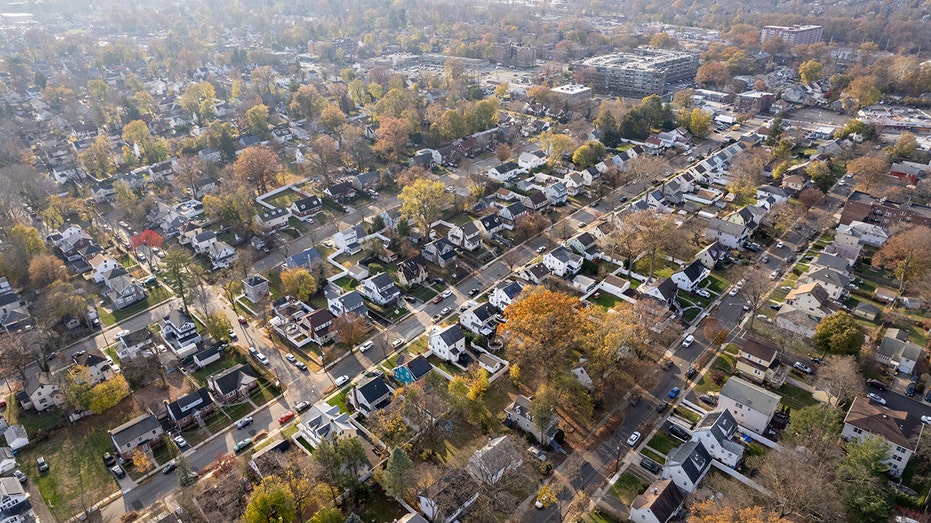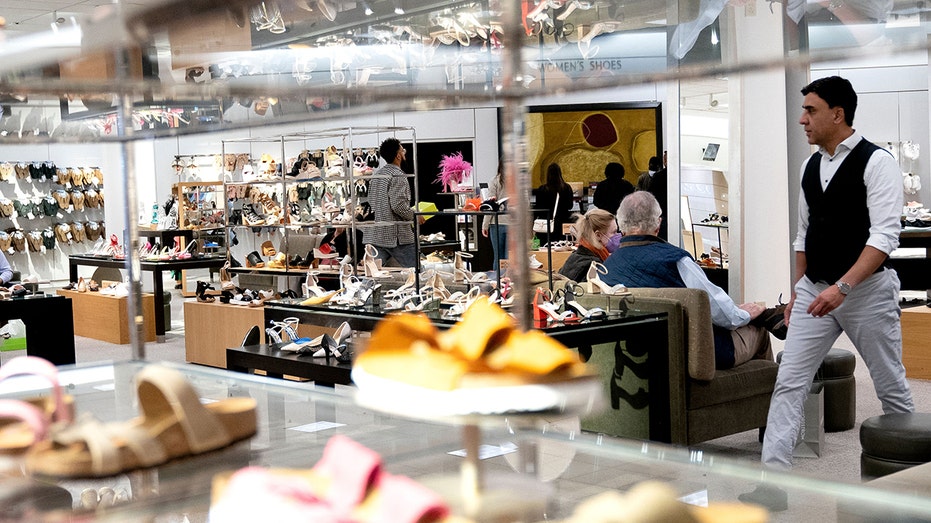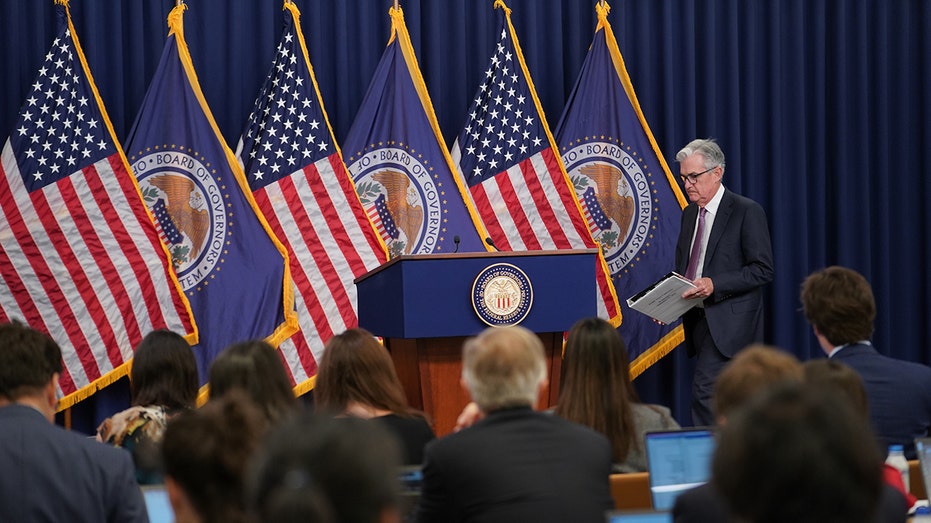What is a rolling recession, and is the US economy in one?
Economy-wide downturn unlikely as various sectors take turns contracting
Inflation worries replaced by recession fears: Brent Schutte
Northwestern Mutual Wealth Management chief investment officer Brent Schutte and Prosper Trading Academy CEO Scott Bauer assess the equity investment picture on 'The Claman Countdown.'
Is the U.S. currently in a recession, or is it headed for one?
That's the question on the mind of many economists as the nation confronts the twin threats of high inflation and the Federal Reserve's most aggressive interest-rate hike campaign since the 1980s.
There is no easy answer. The economy is sending a perplexing and conflicting mix of messages about its health. The labor market is thriving, with the unemployment rate recently tumbling to the lowest level since May 1969. Consumers are still spending, although at an admittedly slower pace than at the beginning of 2022. On top of that, gross domestic product — the broadest measure of goods and services produced in the country — expanded at a 2.9% annual rate in the fourth quarter.
At the same time, the manufacturing sector has almost certainly contracted into a recession, housing prices are slumping as sales plummet and tech layoffs are mounting by the week.
INFLATION STILL OUTSTRIPPING WAGES IN MOST US CITIES
Now, there is a new name circulating for this puzzling post-pandemic economy: a rolling recession. Coined by Loyola Marymount University economics professor Sung Won Sohn, a rolling recession describes a hybrid economy in which industries and sectors essentially take turns contracting, rather than declining all at the same time.

Housing starts fell for a fourth straight month in December and were down for the whole year for the first time since 2009. (Yuvraj Khanna/Bloomberg via Getty Images / Getty Images)
"In this situation, we will never see an overall economy-wide recession," Sohn told FOX Business. "But we take turns as a result. Everyone suffers. But an overall recession does not occur."
One reason for the so-called rolling recession is because people and businesses are responding to tighter monetary policy much more rapidly than they used to, according to Sohn. With the easy access to information online and the Fed's transparency in its rate-hike campaign, "we know instantaneously what's happening, what's going to happen. And we act in advance," he said.
A good example of this phenomenon is the housing market, which is the most susceptible to high interest rates. Even before the Fed began to raise rates, individuals and businesses started to refinance their loans in anticipation of steeper borrowing costs. Housing starts, for instance, fell for a fourth straight month in December and were down for the whole year for the first time since 2009.
US ECONOMY COULD SEE 'SECOND CHAPTER' IN PANDEMIC PRICE SURGE
The sector has shown signs of stirring back to life as mortgage rates fall from a peak of 7.08% recorded late last year.

Nearly all the retail sales categories — including motor vehicles, furniture and personal care stores — posted a decline last month. (STEFANI REYNOLDS/AFP via Getty Images / Getty Images)
Sohn now believes that consumers are in a recession, evidenced by the 1.1% decline in retail sales in January, the biggest monthly drop since December 2021. Nearly all the categories — including motor vehicles, furniture and personal care stores — posted a decline last month.
He anticipates that business spending on inventories and capital spending will decline next.
Recessions are typically defined by two consecutive quarters of negative economic growth and are characterized by high unemployment, low or negative GDP growth, falling income and slowing retail sales, according to the National Bureau of Economic Research, the official arbiter of downturns.
It requires that a recession involve a "significant decline in economic activity that is spread across the economy and lasts more than few months."
FED'S POWELL SAYS BLOWOUT JOBS REPORT SHOWS INFLATION FIGHT HAS A WAYS TO GO
Hiking interest rates tend to create higher consumer and business loan rates, which slows the economy by forcing employers to cut back on spending. Mortgage rates have more than doubled from one year ago, while some credit card issuers have ratcheted up their rates to 20%.

Federal Reserve Chair Jerome Powell arrives to speak during a news conference following a Federal Open Market Committee meeting in Washington, D.C., on Sept 21, 2022. (Sarah Silbiger/Bloomberg via Getty Images / Getty Images)
There is still a danger the nation stumbles into an economy-wide recession, according to Sohn. The Fed has already lifted the federal funds rate eight consecutive times to a range of 4.5% to 4.75% from near-zero in March 2022 and signaled that a "couple more" rate hikes are on the table this year.
Markets expect the Fed to raise rates at least two more times, although bets on a higher peak rate are rising following the astonishingly strong January jobs report. Several Fed officials this week have indicated they may need to increase rates more than previously expected if the strong economy persists.
CLICK HERE TO READ MORE ON FOX BUSINESS
That could exacerbate financial pain for millions of U.S. households as borrowing costs climb higher, create more volatility in the stock market and potentially tip the economy into a recession.
"I think the central bank has done a good job of slowing down the economy and inflation," Sohn said. "And I think it’s time to pause and then wait. If they keep raising the interest rate as Chairman [Jerome] Powell predicts, you could have a real, economy-wide recession. That would be kind of a double whammy. All these individual sectors have or are going through a recession. An overreaction on the part of the central bank could put all of us into a deeper recession together, and we should avoid that."





















